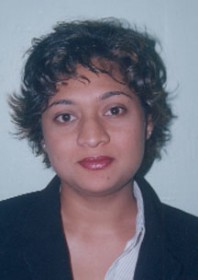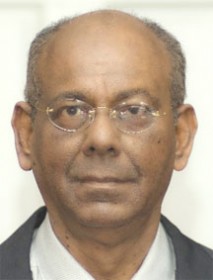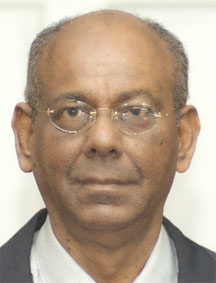PPP/C executive Ralph Ramkarran has called for the government to actively seek out cases of domestic abuse.

Asked by Stabroek News to respond to this, Human Services Minister Priya Manickchand said a proactive government response to domestic violence is necessarily limited to expanding services so that they are accessible by all. She said government could “ill afford” to go into communities and seek out cases, since this would, among other things, put a strain on the country’s developing economy.
Ramkarran, Speaker of the National Assembly, had called for government to go and seek out cases of domestic violence. The year so far has been a bloody, brutal and murderous one for women.
Some nine women have been brutally killed, allegedly by the men they shared their lives with and Ramkarrran in his column in the Guyana Chronicle last Monday called for the issue to be treated as an emergency by the government.
“The government must be proactive and seek out cases of domestic abuse starting right now. The ministry can no longer wait for reports. These are not difficult to find. If the police reports complaints of domestic violence to the ministry, intervention by social workers can be effected before ‘murderation’ takes place,” Ramkarran wrote.
When contacted Manickchand said while she welcomed the focus placed on the issue by Ramkarran, his call for the government to be proactive by seeking out perpetrators and victims before it becomes too late is “impractical”.

“To suggest… that we should go into communities and/or house to house to proactively determine who is being abused may well cause a strain on our economy that our developing country could ill afford.
“Indeed, I would be interested in learning of any country in which the government and/or NGOs went house to house to determine where domestic violence existed and addressed same, especially when one bears in mind that domestic violence includes verbal, emotional and psychological abuse all of which could be almost as bad as physical abuse,” Manickchand told Stabroek News.
She said rather that the government and in particular her ministry must strive to ensure that services are accessible in every village and community and that every citizen, especially women, is aware of the dangers and ill effects of domestic violence.
She said they have to continue to make their systems efficient and user friendly so that persons feel comfortable making reports.
“While it may seem unfair to place another burden on an already burdened victim, victims are encouraged to love themselves and to discharge their responsibility to themselves and to their children and to seek out the help that is offered and available to get out of abusive relationships,” the minister added.
She said government will continue to strive to eliminate domestic violence utilising all of the resources available. “The time has certainly come, for all to be involved in the struggle to eliminate domestic violence,” she said.
‘Monstrous obscenity’
Ramkarran, who is also a senior member of the PPP/C, had addressed the issue of domestic violence since in 2008 as he said he was moved by the unprecedented slaughter of women in that year.
“It continued last year. I did not think it could get worse. To my shock and horror, the violence against women as a result of domestic abuse has degenerated this year into a monstrous obscenity and ought to be treated as an emergency by the government,” Ramkarran wrote.
He reproduced the 2008 article, in which he spoke about the approach by the judiciary on the issue, among other things.
“One area that I am deeply troubled about, and which I followed with some consternation, is the approach of the prosecutorial and judicial authorities in sentencing in relation to killing of women. This observation has nothing to with the personalities involved. It is a system which has developed over many years. Men charged with murder of women arising from domestic circumstances, almost always plead guilty to manslaughter,” Ramkarran had written.
He had called for the policy to change immediately and added that for it to be changed does not require any government intervention but rather for prosecutors to stop accepting the plea to the lesser count and for judges to shape up.
Meanwhile, Manickchand applauded Ramkarran and encouraged persons to emulate his stand on the issue adding that it is one she hopes “will include tangible efforts to eliminate domestic violence.”
According to her, over the years the government has made it clear that the approach to domestic violence will be one of no tolerance.
“To this end laws have been passed and policies written and implemented. Shelters established and legal aid expanded all with a view to providing assistance to victims of domestic violence,” she said.
She said Guyana, like other countries, faces challenges with its population “including our service providers such as police, magistrates, other court officers, social workers, doctors and nurses etc, changing their beliefs and attitudes towards gender equality generally and violence against women in particular.
“While much has been done about which we can be justly proud as a country much more remains to be done especially in the area of implementing the provisions of the 1996 Domestic Violence Act and making all the services user friendly in every single community.”
Harlem
The first woman to be killed in 2010 allegedly by a man in her life was young teacher Luciana Bhagwandin whose stabbed body was found at Harlem, West Coast Demerara one day after she went missing from the Cummings Lodge, East Coast Demerara home she was staying at.
About two weeks after the January 10 date her body was found, the police asked for assistance in locating her boyfriend who “is of East Indian descent, about 35 years of age, brown complexion and grows a beard.” They had said the man gave his name to the deceased as Jerry Jhagroo and drives a black car and he also “has a male friend whose name was given as Mark and who owns a blue Toyota 212 Carina motor car, in which the deceased was last seen.” Neither has been arrested.
Three days later on January 13, Sunita Muniram’s lifeless body was found in the channel of the Nismes, West Bank Demerara koker, after she was alleged killed by her ‘controlling’ husband, Ramesh Muniram. Ramesh was last seen with his wife, from whom he was separated, on a bicycle headed in the direction of the lonely koker area.
Then on March 1, Omeka Todd, 20, was brutally stabbed by the father of her two children. The woman succumbed outside the Ketley Primary School in Charlestown, where she ended up after fleeing from the attacker who inflicted numerous stab wounds. Police have since issued a wanted bulletin for Charles Rollins called ‘Chucky’.
A foul smell emanating from an Eping Avenue, Bel Air Park apartment on March 4 aroused suspicions.
Police were later informed and the decomposing remains of Dr Guillermo Martinez, a 58-year-old physiotherapist and 47-year-old Usawatie Persaud were found. Police later said that following the deaths a marriage certificate with their names printed on it was found. Persaud had lived in New Amsterdam, Berbice with her reputed husband. Police had said that they were treating the case as a murder/suicide. A post-mortem examination (PME) on Persaud found that she was stabbed about the body multiple times.
One done on Martinez, a Cuban, was inconclusive but investigators believed that he had consumed poison.
On March 9, the remains of Jairool Rohoman called ‘Chico’, 42, were found floating in a canal at Canje. Rohoman’s head was partly shaven and her long hair had been used to tie her feet together.
A canvas sling that was tied around her waist was also used to bind her hands and feet together. There was a chop to her chin and burns on her back, hand and other parts of her body. One of her eyes was also bulging out. Despite these telling signs that the woman was a victim of murder, a PME on her body was inconclusive.
The police had held her reputed husband, whom she had separated from three months earlier but he was released. Relatives are convinced that the man, who was the last person seen with her, killed the woman.
Then five days later, the charred remains of newspaper vendor Jacqueline George was pulled from her burnt home at Lot 120, ‘E’ Field Sophia. It was later discovered that the woman’s throat had been slit prior to the blaze.
Her reputed husband Godfrey Stewart has since been charged with her murder.
Liloutie ‘Pinky’ Seeram, 32, of Glasgow Housing Scheme, East Bank Berbice was hacked to death and her mother badly chopped when her husband attacked them with a cutlass around 1.30 am on March 27.
Seeram, a mother of two, was wounded to the back of her head and three fingers on her left hand were severed. Her mother, Lata ‘Cheryl’ Inderdeo, 52, was chopped on her right shoulder and left palm and had to be hospitalized. Police are still looking for the suspect and her relatives have since offered $1million for information leading to his arrest.
On April 27, 36-year-old Donette Ward was stabbed to death and her 59-year-old husband Geoffrey Ward has since been charged with murder.
On May 2, the mangled body of Bridgette Gangadin was found on the Vigilance Public Road with her head crushed a stone’s throw away from the Vigilance Police Station.
Her husband Dwarka Gangadin, who claimed that his wife jumped out of the Canter truck he was driving and her head was crushed by a rear wheel, has since been charged with her murder.

